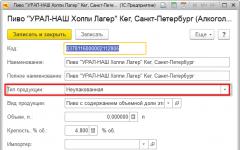Time and clocks surround us everywhere. After all, time is our life. We constantly ask or say, “What time is it? What time are you coming? I have to be at work at ten. I don't have any free time." We look at the clock every time we are in a hurry and are afraid of being late.
The French are subject to exactly the same problems! And today, as you may have guessed, our conversation will be about watches, time and everything connected with it. How to ask a question about time, how to answer such a question - we will talk about this and much more in our article.
Quelle heure est-il, s’il vous plaît?
Let's look at how you can answer the question about time in French:
Asking a question about time in FrenchQuelle heure est-il? - What time is it now?
- 8.00 - Il est huit heures (précises) (du matin / du soir). - 8 hours (exactly) (am/pm).
- 8.10 - Il est huit heures dix. - 8 hours 10 minutes.
- 8.15 - Il est huit heures quinze. = Il est huit heures et quart. - 8 hours fifteen minutes = 8 hours and a quarter.
- 8.30 - Il est huit heures trente. = Il est huit heures et demie. - 8 hours thirty minutes. = Half past nine.
- 8.45 - Il est huit heures quarante-cinq. = Il est neuf heures moins le quart (quinze). - 8 hours forty-five minutes. = Fifteen minutes to nine.
- 8.55 - Il est neuf heures moins cinq. - Five minutes to nine.
- 12.00 - Il est midi. - Noon.
- 24.00 - Il est minuit. - Midnight.
- 3.00 - Il est trois heures du matin (de l’après-midi). - 3 a.m. (afternoon = afternoon).
Now friends, pay attention to the following questions about time and possible answers to them in French:
- Quelle heure est-il, s’il vous plaît? – Il est neuf heures et demie.– What time is it, please? - It's half past nine now.
- A quelle heure reviens-tu à la maison? – Je reviens à la maison à cinq heures du soir.– What time do you return home? – I return home at five o’clock in the evening.
- Peux-tu venir chez moi demain à neuf heures? - Non, je ne réussirai pas, je viendrai à dix heures moins le quart.-Can you come to me tomorrow at nine o'clock? - No, I won’t make it, I’ll arrive at fifteen minutes to ten.
- Vous êtes en retard de dix minutes. – Excusez-moi, je me suis réveillé à huit heures.- You are ten minutes late. - Sorry, I woke up at eight o'clock.
- A quelle heure dois-je t’attendre? - J'arrive à six heures.- What time should I expect you? - I'll come at six o'clock.
- A quelle heure arrive le train? – Le train arrive à sept heures et dix minutes.– What time does the train arrive? - The train arrives at seven o'clock ten minutes.
- Quelles sont tes heures de fonctionnement?– What are your working hours?

 Time in French
Time in French Please note: Une heure et demie - an hour and a half (one and a half hours) BUT! Un demi-heure – half an hour.
And a few more details...
Dear readers, we would like to draw your attention to some details that show the time in French. The fact is that the French designation of time is somewhat different from the Russian one. Remember the following rules:
- Question: “What time is it?” in French can be specified in several ways: “Quelle heure est – il?” and a more polite option “Vous avez l'heure s'il vous plaît?- Do you have a watch?
- In French, time does not have such a concept as “night”, that is, there is a division: morning (from one o’clock in the morning to noon), noon, afternoon (from one o’clock in the afternoon until six o’clock in the evening), evening (from six o’clock until midnight). Accordingly, after specifying the time, you can add expressions "du matin - morning", “de l’après – midi – day”, "du soir - evenings", but this is not a prerequisite.
- In French, before half (for example, before 10:30), minutes are added to the previous hour, and after half, minutes are subtracted from the next hour. Note: Il est deux heures vingt (14:20). Il est trois heures moins vingt (14:40).
- Word "minute(s)" is not used in French tense, but it is implied, so we say: « Il estcinq heures une" (17:01).
- Quarter in French "le quart", but it’s correct to say: "Il est dix heures et quart" (10:15), whereas "Il est onze heures moins le quart" (10:45) , that is, when a quarter is added, the expression will be used "et quart", and when it is taken away - "Moins le quart".
 What are you doing in different time day?
What are you doing in different time day? Now dear readers, perhaps you are wondering how to say it in French different kinds hours:

- La montre – wristwatch
- Le sablier – hourglass
- Les horloges murales – wall clocks
- La montre de poche – pocket watch
- Le cadran solaire – sundial
- Le coucou – cuckoo clock
- La comtoise – grandfather clock
- L’horloge de table – table clock
- Le cadran – dial
- Regler l'horloge/la montre, etc. - set the clock
Friends, at the beginning of learning French, beginners may have difficulty with how to correctly answer questions about time, but in fact, it is not difficult at all.
The main thing is to study the rules very carefully and say the time out loud in French, substituting different numbers. The question is to study everything well. Good luck to you!
There are more tenses in French than in Russian. They are divided into simple and complex. Simpler times are formed without auxiliary verb, complex- using an auxiliary verb. There are 4 auxiliary verbs: avoir, être, aller and venir. The last two are used to form tenses of the immédiat group - the nearest past (venir) and the near future (aller). The remaining tenses are constructed using avoir or être standing in a specific tense.
In addition to tenses (present, past and future), the French verb changes according to moods. Mood The verb shows how the action relates to reality, whether it is real or depends on desire or condition.
There are 4 moods in French:
1. Indicative mood - Indicatif
Verbs in the indicative mood denote a real action that is happening, has happened or will actually happen. Verbs in the indicative mood change tenses.
Chain of basic tenses of the indicative mood

| Indicative | simpler times | difficult times |
| past tenses | passé simple | passé composition |
| passé anterieur | ||
| passé immediat | ||
| passé immediat dans le passé | ||
| present time | present | |
| (present dans le passé) | ||
| future times | ||
| futur dans le passé | future antherieur | |
| futur antherieur dans le passé | ||
| future immediat | ||
| future immediat dans le passé |
2. Conditional mood - Conditionnel
Verbs in the conditional mood denote an action that is not real, but possible when some condition is fulfilled (in Russian these are sentences with the particle would). In French, there are two tenses in this mood: present and past. The difference between them is that a verb in the present tense denotes an action that can be carried out; and in the past tense - something that could have happened in the past, but was not realized for some reason and will not happen again.
3. Subjunctive mood - Subjonctif
Verbs in the subjunctive mood denote an action that is represented with subjective assessment speaker (desire, desire, fear, uncertainty, etc.). French has 4 tenses within this mood, but now only 2 are used (présent and passé).
Good afternoon friends! Today, together with my French teacher, Ekaterina, I will tell you about Times in French.
The French are very similar in mentality to the Russian people, but their language is radically different from ours. The mere fact that different sources are still arguing about the number of tenses in French speaks of the versatility and unusualness of this language.
Sometimes you can hear that the French use as many as twenty-five tenses. But don’t be afraid, this is completely untrue, and if you count in this way, then you can find a couple of dozen tenses in Russian. tenses in French really? Let's count together.
It was, is and will be
By and large, we can distinguish three main tenses: present, past and future. Just like in our speech, isn't it? But think about it, we not only use the ordinary past, but also divide it into the perfect and imperfect.
In French it is very similar: in each time period there are divisions that indicate whether the action has ended at a certain moment. Thus, there are two real ones:
- present - ordinary present.
- present progressif – present ongoing
(used extremely rarely, usually replaced by a simple one). To make a sentence we use the present tense, en train de and the infinitive. Therefore, there is no need to separately consider his education.
Six past:
- Passé simple – past complete.
- Imparfait – past incomplete.
- Passé composé - complex past.
- Plus-que-parfait is a complex past expressing a completed action (never used in oral speech).
- Passé antérieur - a completed past preceding another past
- Passé immediat – the nearest past. We get it using venir in the present de and the infinitive, so it is not included in the tense tables.
and three future ones:
- Futur simple - simple future.
- Futur antérieur – composite future.
- Futur immédiat (futur proche) – the near future, is formed with the help of aller in the present and the infinitive, therefore it is not included separately in the tables.
As the names indicate, each temporal direction (Les temps des verbes) has one simple temporary form and one or more compound ones. They also add the past participle, making a total of nine main tenses.
Yes, theoretically, this figure can be increased if we add the imperative and subjunctive mood and personal forms, for example, the gerund. But in Russian and English we do not confuse the concepts of temporary conjugations of action words and their other changes. Therefore, you shouldn’t do this here either.
Although the French call these conjugations complex tenses, they can also be simple and consisting of two words.
We must pay attention to the fact that for the French it matters whether the action was completed at a certain point in time and whether it is possible now or earlier to take advantage of the results. Based on this, remembering the rules for using tenses is very simple.
And one more point that will make it easier to understand the types of tense forms: in simple Les temps the main verb changes, and in compound ones - the auxiliary verb, which shows that the action is over. There are not many grammar aides; they are simply taught by heart and the seven tenses are memorized at once.
The easiest way to understand the principle of conjugations is to study the table:
In it you can see the participle (top right) and eight simple tense forms of the verb - to have, which is just one of the auxiliaries. Below are two more inclinations.
I hope I helped you understand the types of conjugations in French. Exercises and training will help you correctly change words in accordance with the meaning of your statement.
Along with its features, Skype lessons will help you quickly and for a long time. Choose a course convenient for you and go ahead, conquer the most romantic language in the world!
Subscribe to the blog news and I will tell you many more interesting things about languages. You will also receive as a gift, completely free of charge, an excellent basic phrasebook in three languages, English, German and French. Its main advantage is that there is Russian transcription, so even without knowing the language, you can easily master colloquial phrases.
I was with you, Ekaterina, a French teacher, I wish you a good day!
Don’t forget to get your friends involved too, learning a foreign language together is more interesting.
Before you get acquainted with the conjugations of various verbs, let's talk about the tense system in French. It is worth warning that it is a little more complicated than in Russian, but do not be afraid: a methodical study of the theory will not let you get confused!
Here are some important facts. Firstly, in the French language there are three tenses: present, past and future, but there are many more tense forms. Secondly, tenses in French are divided into simple and complex. Simple tenses are formed without an auxiliary verb, complex tenses, on the contrary, with the help of an auxiliary verb. There are only four auxiliary verbs: avoir (to have), être (to be), aller (to go) and venir (to come, to happen).
To choose the correct form for a verb, you also need to know its mood. The mood shows the attitude of the action to reality: whether it is real or depends on some conditions. There are four moods in total. Let's look at each of them.
Indicative mood - Indicatif
Verbs in this mood denote real action. This action happened, is happening or will actually happen. The main times of this time are given in the table:
| Past tense | Present tense | Future |
|---|---|---|
| Passé composition Imparfait Passé simple Passé immediat Plus-que-parfait Passé anterieur |
Present Present progressif |
Future simple Futur antherieur Futur immediat |
Present- simple tense, which denotes action in the present tense. This tense can also be used instead of the past tense. In this case, the use of the present tense is considered a stylistic device that makes the text more picturesque.
Present progressif– the tense is complex and expresses the action taking place at the moment. Very often it is replaced Present.
As for past times, in colloquial speech only three are used: passé compose (past perfect), imparfait (past imperfect) and plus-que-parfait (pre-past).
Passé composition And plus-que-parfait are complex tenses, they are formed using the auxiliary verbs avoir or être and the desired participle. Both tenses are translated into Russian by a verb with the past tense.
Imparfait- this is a simple time. The remaining two are past tenses, passé simple And passé anterieur, are used only in written speech.
Passé simple is a simple tense, and Passé antérieur is a complex tense (it is formed using the auxiliary verb in passé simple and a participle).
Passé immediat or in other words, passé récent is the past tense, which denotes an action that happened recently, just now.
All past tenses in French can be translated into Russian using verbs in the past tense.
From future tenses, in colloquial speech from future tenses only future simple, just time. Futur antherieur- the tense is complex and is used in written language.
Imperative mood - Imperatif
Verbs in this mood denote an order, advice, or request. There are only two tenses used in this mood:
| Past tense | Present tense | Future |
|---|---|---|
| Passé | Present | — |
Subjunctive mood - Subjunctif
This mood denotes a possible or desired action or assumption. Simple tense forms in this mood are: présent du Subjonctif and imparfait du Subjonctif, complex: passé du Subjonctif and plus-que-parfait du Subjonctif. Of these forms, only two are used in real French: présent du Subjonctif and passé du Subjonctif.
Conditional mood - Conditionnel
This mood denotes an action that is desirable or possible under certain conditions (in Russian these are sentences with the particle “would”). In this mood the forms Conditionnel présent and Conditionnel passé are used.
In addition to the above forms, there are impersonal forms verbs: infinitive (infinitif présent, infinitif passé), participles (participe présent, participe passé), participle / gerund (gérondif).
We will look at each of the tenses listed above in more detail in subsequent lessons, but for now check the material you have learned on the questions from the exercise.
Lesson assignments
Exercise 1. Answer the questions:
1. How many moods are there in French?
2. How many tense forms are used in the indicative mood?
3. What tense can be used instead of the past to give expressiveness to the text?
4. What is a complex tense form?
5. How many tense forms are used to indicate the past tense in the indicative mood?
Answer 1.
1. Four inclinations.
2. Eleven species-temporal forms.
3. Present.
4. A complex tense form is formed using two verbs: auxiliary and main.
5. Six: Passé compose, Imparfait, Passé simple, Passé immédiat, Plus-que-parfait, Passé antérieur.
Traditional times French verbs represent a complex structure that includes distribution into three main categories (future, present and past time) and provides for distribution into simple and complex structures depending on the method of shaping used. All four types of the French mood have their own set of tense forms (Indicatif - express., Impératif - command, Conditionnel - conditional and Subjonctif - subjunctive). Let's look at the tenses of French verbs in more detail.
So, indicative(action as a fact) involves the use of twelve tense forms of the present, future and, of course, past tense, five of which are simple, the remaining seven are complex. Simple tense forms of the indicative mood include, first of all, such dominants as:
1. Pré sent- is formed by adding a system of inflections (for example, for the first person singular - -e (chapter 1 group), -is (chapter 2 groups); -s/-x + alternating stems (chapter 3 groups) for 1st person plural - -ons (for all verb groups)) to verb stems (without endings) indefinite. forms and is used to display ordinary, regular actions, or actions occurring in the present time period. —
Vous allez souvent au théâtre. — You often go to the theater.
2. Passésimple — is formed by adding a system of inflections (for example, for the second person singular and plural - -as; -ites (chapter 1 of group), -is; -tes (chapter 2 of group); -is (-us) ; -ites + alternating stems (chapter 3 of group) and is used to denote completed actions in the past, without being used in colloquial speech. The scope of use of Passé simple is a coherent literary text in which verbs in this tense form are used. mainly in the singular or third person plural -
Chlodwig devint le premier roi de la dynastie de Mérovingiens l'année 486. - Clovis became the first king of the Merovingian dynasty in 486.
3. Imparfait — is formed by adding a system of inflections (- ais, - ais, -ait, -ions, -iez, -aient.) and is used to denote past actions of an unfinished type, repeated past actions, as well as descriptions and polite requests. —
Il lisait beaucoup l'année dernière. — He read a lot last year. (unfinished action in the past).
4. Future simple— is formed by adding a system of inflections (-ai, -as, -a, -ons, -ez, -ont. (explain what inflections are added to) - verb units of the 3rd group have their own characteristics) and is used to indicate future actions . —
Il reviendra pas de sitôt. - He won't be back soon
5. Futuredanslepassé — is formed by adding a system of inflections (-ais, -ais, -ait, -ions, -iez, -aient) to the verb units of the indefinite. forms and is used to display future actions in relation to the past tense, mainly used within the framework of subordinate clauses of an additional type. —
Elle a dit qu'elle vous aiderait.
— She said she would help you.
1. Complex indicative tense forms, in turn, include:sentPre- is formed analytically - through a combination of the auxiliary unit être (in the form of the present tense), the stable element en train de, as well as the main verb in its indefinite. form - and is aimed at designating actions performed directly at the moment (now). This tense form is used very rarely in the language, usually replaced by the Présent form. —
Ils sont en train de déjeuner en ville. - (They are (now) dining out) = Ils déjeunent en ville
2. Passécomposition- is formed analytically - through a combination of the auxiliary unit avoir or être (in the form of the present tense) and the main or base verb (in the form of Part. pas. - past participle) - and indicates the completion of actions or emphasizes their effectiveness. —
Avez-vous déjà regard é cette pièce? —Have you already watched this play?
3. Plus-que-parfait- is formed analytically - through a combination of the auxiliary unit avoir or être (in the form imparfait) and the base verb (in Participe passé) - and contains an indication of the precedence of one past action to another. Often used in subordinate clauses conditions, as well as for the purpose of introducing additional shades of regret or politeness into phrases. —
Si seulement j’ é tais venu à temps! - If only I had come on time! (regret)
Si vous m'aviez laiss é en paix, je ne ferais mal. (If you had left me alone, I would not have acted badly).
4. Passéimmédiat- is formed analytically - by a combination of the verb unit venir (in the form of the present tense), the preposition de and the infinitive of the main verb - and is used to denote recently or just committed actions (just about, etc.) -
Ils viennent de toucher vers la fin. - They just came to an end.
5. Passéanterieur- complex, analytical tense, based on the combination of the auxiliary unit avoir or être (in the form passé simple) and the main verb (in the form Participe passé); used only after certain conjunctions (quand - when, dès que - as soon as, lorsque - when, etc.) to indicate the precedence of one completed action to another or to indicate the completeness and speed of past actions (en un moment (in a minute), bientôt (soon)). Is the prerogative of written literary texts. —
Bientôt j’ eus dé cidé de différer mon départ. — Soon I decided to postpone my departure (end of action)
Quand la conversation fut tombé sur cette question, il s’intéressa. — — When the conversation touched on this issue, he became interested. (combined with Passé simple in the main)
6. Futur immé diat- an analytical form formed on the basis of a combination of the verb unit aller (in the present tense form) and the infinitive of the main verb; used to record actions expected in soon(soon). —
Nous allons quitter ses études. — We are going to leave school (soon).
7. Future anté rieur — complex shape, formed on the basis of a combination of the auxiliary unit avoir or être (in the form of futur simple) and the main verb (in the form of the past tense); used to express the precedence of one future action to another; reflecting the completion of actions by a certain time (vite - quickly, Dans sept heures - in seven hours, etc.); expressions of the probabilistic nature of actions. —
Apportez-moi ce journal, dès qu’il aura sorti du sceau. - Bring me this newspaper as soon as it comes out of print. (precedence)
J'aurai fait un faux numéro. - I must have the wrong number. (assumption)
Imperative mood(transmission of expressions of will), in turn, is characterized by the possibility of using verbs in their two main tense forms:
1. (Impé ratif) present- is formed synthetically (inflectively) and has only three forms - the second person, both singular and plural(you and you) and only the first person plural (we); used when it is necessary to convey requests, orders, wishes and other expressions of will. —
Attendez -moi ici. - Wait for me here. (coincides with the form Indicatif Présent - (vous) attendez)
2. (Impé ratif) passé- an analytical form formed by combining the auxiliary unit avoir or être (in the form impératif présent) and the main verb (in the form Participe passé) and has only three forms (by analogy with ( (Impé ratif) present); used extremely rarely to express actions the implementation of which is necessary before another action or within a certain time period in the future. —
Aie décidé les problèmes, jusqu’à ce que il telephone. - Solve your problems before he calls.
A yez pris des notes avant son départ. — Record the lecture before he leaves.
It should be noted that this form imperative mood pronominal verbs are deprived.
French verbs have two tense forms and conditional mood(transfer of possible actions). —
1. (Conditionnel) pré sent- a simple, synthetic form, structured by adding a system of inflections (imparfait endings - -ais, -ais, -ait, -ions, -iez, -aient) to the infinitive stems of the base verb (for verbs of the third group they will coincide with Futur simple); used when conveying assumptions, requests (along with the imperative), doubts in the present or future, etc., as well as in subordinate clauses of the condition -
Je voudrais encore un peu de sel. — I would like a little more salt. (request)
Elle accé derait à notre proposition, peut-être. “Perhaps she would agree (or maybe not) to our proposal.” (doubt)
Si tu te calmeras, nous fixerions rendez-vous. - If you calm down, we would still arrange a meeting. (condition)
2. (conditionnel) passé - a complex analytical tense form formed by combining the auxiliary unit avoir or être (in the form Conditionnel présent) and the main verb (in the form Participe passé); used to display hypothetical, possible, alleged actions in the past, as well as in subordinate clauses (if they are related to the past). —
L'inondation aurait fait des dégâts. “The flood obviously caused damage.” (assumption)
Je ne serais pas parti hier ainsi tôt, si mon frère n’était allé en visite. “I wouldn’t have left so early yesterday if my brother hadn’t come to visit.” (unrealized past action)
And finally, in subjunctive mood(transfer of the speaker’s personal attitude to what is expressed) four main tense forms are used, two of which are considered simple:
1. (Subjonctif) pré sent- a simple form constructed by adding a system of inflections (-e, -es, -e, -ent) to the third person plural stems of the present tense of the base verb (in relation to the first and second person forms singular and the third person, both singular and plural) and endings -ions, -iez to the plural stems of the first person present tense of the base verb (in relation to the first and second person plural forms), while the obligatory use of que before the subject is observed. Used to express the succession or simultaneity of actions related to the present (less often the future). —
Mes parents sont contents que je vienne à la maison. — My parents are glad that I come home.
2. Imparfait (du subjonctif)- synthetic formation by adding a system of inflections (-se, -ses, -t, -sions, -siez, -sent.) to the second person singular stems of basic verbs in the passé simple (+ alternation -s / -t, in the third face units). It is used primarily to display the succession or simultaneity of actions implemented in the past, when coordinating times. Rarely used, only in written sources. —
Mes parents étaient contents que je vinsse à la maison. — My parents were glad that I was coming home.
The remaining two tense forms of the subjunctive mood are complex:
1. (Subjonctif) passé - analytical formation using a combination of the auxiliary unit avoir or être (in the form of Subjonctif présent) and the main verb (in the form of the past participle); used in subordinate clauses to record the precedence of the speech moment (before the action, expressed by the verb in the main clause). —
Mes parents sont contents que je sois venu à la maison. — My parents are glad that I came home.
2. Plus-que-parfait (du subjonctif)- a complex form formed by combining the auxiliary unit avoir or être (in the form imparfait du subjon.) and the main verb (in the form of the past participle); used in the process of coordinating times to record precedence. Almost never used in real communication.
Mes parents étaient contents que je fusse venu à la maison. — My parents were glad that I came home.
Thus, we get the following branched structure, which is represented by the tenses of French verbs:
Time
| Forms
|
|
simple |
complex |
|
Indicatif - will declare. mood |
||
real
|
|
Présent continu (used extremely rarely)
|
past
| Plus-que-parfait Passé immediat Passé antérieur (not used in colloquial speeches) |
|
future
| Futur dans le passé | Futur antherieur |
Impératif- he will command. mood |
||
real
|
|
—
|
past
|
—
|
Passé (very rare)
|
future
|
—
|
—
|
Conditionnel - conditions. mood |
||
real
|
|
—
|
past
|
—
|
|
future
|
—
|
— |
Subjonctif - subjunctive. mood |
||
real
|
|
—
|
past
| Plus-que-parfait (hardly used) |
|
future
|
—
|
—
|
Non-finite verb forms |
||
real
|
Infinitif present
Participate present
|
—
|
past
|
Participate passé
|
Infinitif passé
— |
future
|
— |
— |
The table also shows the possibility of distinguishing by tenses and a number of impersonal verbal forms, such as participles and infinitives, however, this aspect is far from unambiguous and requires separate coverage.









